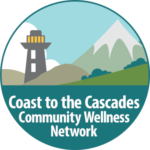
Substance Use Prevention & 5210
The Power of Play
In a world filled with technological distractions and sedentary lifestyles, the importance of physical activity for children cannot be overstated. Beyond the obvious benefits of promoting overall health and fitness, engaging in regular physical activity during childhood plays a crucial role in preventing substance use later in life. Here we’ll explore the significant impact of being an active kiddo on steering away from developing a substance use disorder.
One of the main components of the 5210 Challenge involves one hour of physical activity. Research consistently suggests that there is a strong correlation between physical activity and a reduced likelihood of engaging in substance use. While it may seem surprising that something as seemingly unrelated as running, playing, and jumping can influence a child’s decisions about drugs and alcohol, the evidence is compelling.
- Healthy Alternatives: Physical activity provides children with a constructive and fulfilling way to spend their time. Engaging in sports, games, and other physical pursuits not only offers a sense of accomplishment but also serves as a healthy alternative to boredom and idleness, reducing the likelihood of experimenting with substances.
- Mood Regulation: Exercise releases endorphins, the body’s natural mood lifters. Children who are regularly active are more likely to experience reduced stress, anxiety, and depression. Since many individuals turn to substances to cope with negative emotions, the positive effects of physical activity act as a natural deterrent against seeking solace in harmful substances.
- Peer Influence: Participation in sports and physical activities often involves being part of a team or group. Positive peer relationships and the camaraderie built through teamwork contribute to a sense of belonging and connection. Children who feel connected and supported by their peers are less likely to succumb to the pressures of substance use.
- Enhanced Brain Function: Physical activity has been shown to enhance cognitive function, including improved attention span, memory, and decision-making skills. Children who are active tend to have a sharper focus on their goals and are better equipped to make informed decisions, including those related to avoiding substance use.
- Establishing Healthy Habits: Engaging in physical activity from a young age establishes a foundation for a healthy lifestyle. Children who grow up with an appreciation for movement and exercise are more likely to prioritize their well-being as they transition into adolescence and adulthood, steering clear of risky behaviors like substance abuse.
The role of physical activity in childhood is such a powerful ally to preventing substance use. Beyond the immediate health benefits, regular exercise sets the stage for a lifetime of positive choices and resilience against the pressures of using substances. By exposing youth to positive, healthy opportunities like the 5210 Challenge, we not only ensure a healthier future but also contribute to a society where substance use is less prevalent, and each child has the opportunity to thrive.
Sources:
- Ayodeji Emmanuel Iyanda, Bargavi Krishnan, Temitope Joshua Adeusi. Epidemiology of suicidal behaviors among junior and senior high school adolescents: Exploring the interactions between bullying victimization, substance use, and physical inactivity, Psychiatry Research, Volume 318, 2022, 114929, ISSN 0165-1781, https://doi.org/10.1016/j.psychres.2022.114929. (https://www.sciencedirect.com/science/article/pii/S0165178122005200)
- J. Halladay, M. Ogrodnik, J. Farag Alla, M. Sunderland, L.A. Gardner, K. Georgiades. Playing for more than winning: Exploring sports participation, physical activity, and belongingness and their relationship with patterns of adolescent substance use and mental health, Drug and Alcohol Dependence, Volume 254, 2024, 111039, ISSN 0376-8716, https://doi.org/10.1016/j.drugalcdep.2023.111039. (https://www.sciencedirect.com/science/article/pii/S0376871623012772)
- Wang D, Wang Y, Wang Y, Li R, Zhou C. Impact of physical exercise on substance use disorders: a meta-analysis. PLoS One. 2014;9(10):e110728. Published 2014 Oct 16. doi:10.1371/journal.pone.011072. (https://www.ncbi.nlm.nih.gov/pmc/articles/PMC4199732/)


